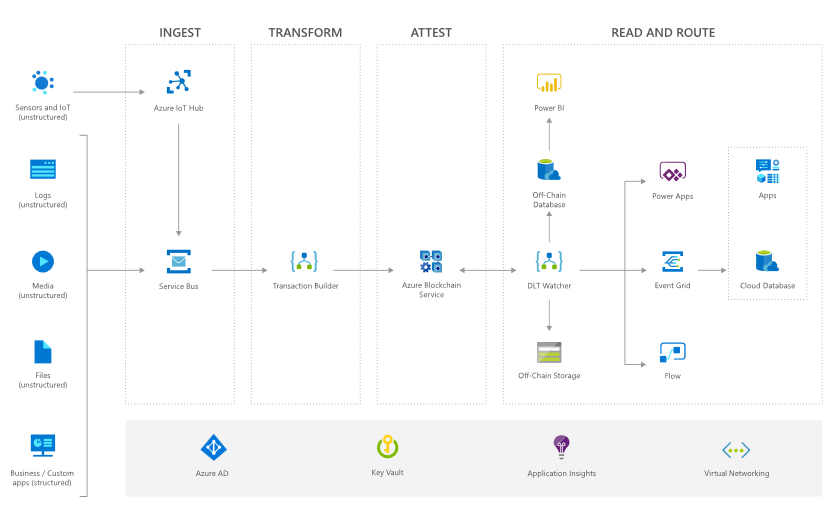| Microsoft Launches Azure Blockchain Service |
| Written by Kay Ewbank | |||
| Friday, 28 June 2019 | |||
|
Microsoft has announced a preview of a fully-managed blockchain service. Azure Blockchain Service is designed to make it easier to set up, manage and control consortium blockchain networks so businesses can focus on workflow logic and application development. Blockchain is a digital technology for recording and verifying transactions, and is used as the distributed transaction processing engine behind cryptocurrencies such as Bitcoin. A blockchain takes a database and copies it across multiple machines so that there's no one controlling entity. The data is encrypted, and the blockchain technology tracks who is making payments, who is getting paid, and what individual balances are. This is a distributed ledger.
A consortium blockchain network is private, so whereas on a public blockchain network, anyone with an Internet connection could join the network, to join a consortium network you have to have permission from network admins. The service is designed to let users create and deploy a blockchain network with permissions just by clicking through a sequence of choices. The service can then be used to manage consortium policies using an interface in the Azure portal. There are facilities for adding new members, setting permissions, monitoring network health and activity, and executing governed, private interactions through integrations with Azure Active Directory. Alongside the service, Microsoft announced new tools and extensions for working with blockchain networks, and a partnership making Ethereum blockchains useful in Azure Blockchain Service.
The partnership with J. P. Morgan means that Quorum, J. P. Morgan's variant of the Ethereum blockchain, will become the first ledger available in Azure Blockchain Service. Quorum can be used via a number of open-source tools while also supporting confidential transactions. Other services planned for the next few months include digital token management, improved application integration, and support for R3’s Corda Enterprise. Once a ledger is set up, to make it useful developers need to create smart contracts. Microsoft has released an extension for VS Code that can be used to create and compile Ethereum smart contracts, deploy them to either the public chain or a consortium network in Azure Blockchain Service, and manage their code using Azure DevOps. Microsoft also announced the Azure Blockchain Dev Kit. This has connectors and templates for Azure Logic Apps, Microsoft Flow, and Azure Functions to make it possible to integrate business applications with smart contract updates and transactions. Azure Logic Apps is a cloud service that can be used to schedule, automate, and orchestrate tasks, business processes, and workflows. Microsoft Flow is a service for creating automated workflows between apps and services for tasks such as synchronizing files, getting notifications, and collecting data.
More Information Related ArticlesGoogle Launches Blockchain ToolKit EU Blockchain Observatory and Forum Blockchain AMA Learn To Program the Blockchain With Devslopes For Free Microsoft Introduces CoCo Blockchain Framework The Blockchain Technology Beats Algorithms & Bridges in Complex Networks Inside Bitcoin - The Block Chain Blockchain and Bitcoin Skills In Demand Linux Foundation Backs Blockchain Project To be informed about new articles on I Programmer, sign up for our weekly newsletter, subscribe to the RSS feed and follow us on Twitter, Facebook or Linkedin.
Comments
or email your comment to: comments@i-programmer.info |
|||
| Last Updated ( Friday, 28 June 2019 ) |



